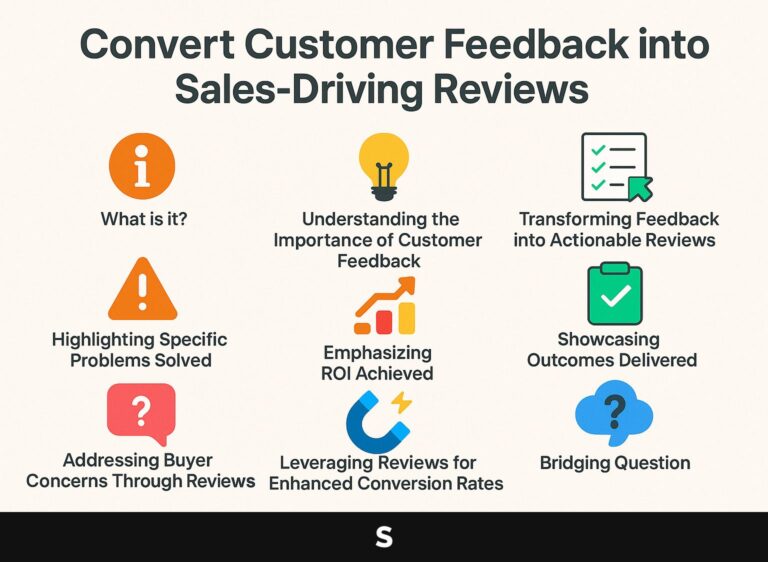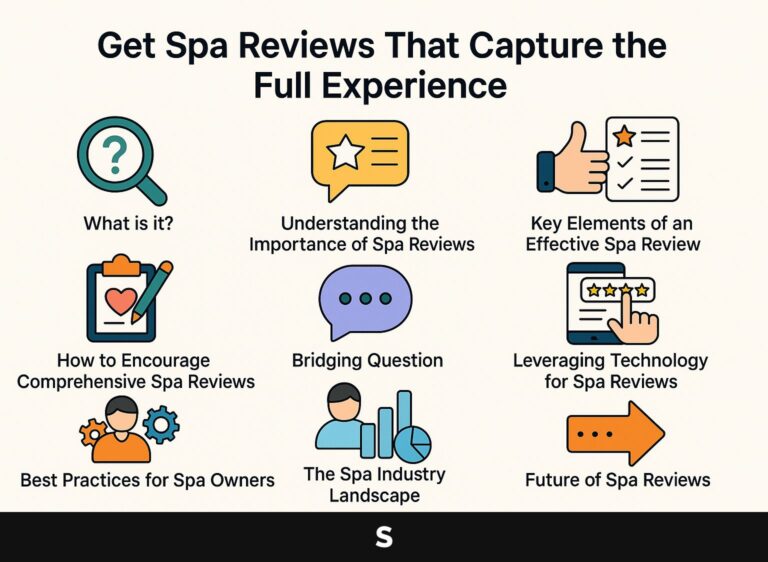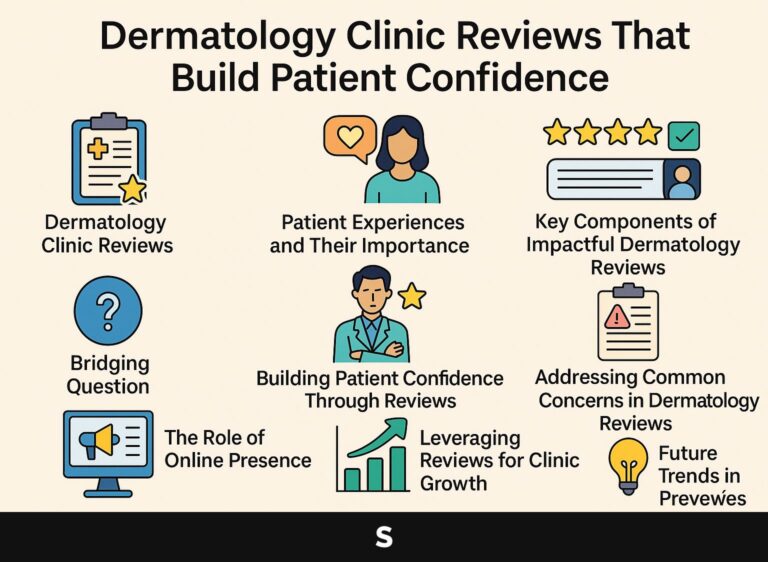Get Boutique Hotel Reviews That Showcase Your Unique Experience
When looking for the ideal boutique hotel, you want more than a place to sleep; you’re looking for a special stay that matches your tastes and likes. Spokk.io knows this need, showing what makes each hotel special through reviews that describe the charm, personal service, and unique features. Learn how detailed reviews can improve your hotel stay and highlight the real charm of boutique hotels, making sure your next trip is memorable.
Key Takeaways:
- What is a Boutique Hotel Review?
- Why Are Unique Experiences Important in Boutique Hotel Reviews?
- What to Highlight in Boutique Hotel Reviews
- How to Write Useful Boutique Hotel Reviews
- Question: How Do Reviews Affect Upcoming Visitors?
- Word Meanings in Short Hotel Comments
- Best Practices for Writing and Sharing Boutique Hotel Reviews
- How to Encourage Guests to Leave Unique Reviews
- How Reviews Affect the Success of Boutique Hotels
- Frequently Asked Questions
- 1. How can I get boutique hotel reviews that truly showcase my unique experience?
- 2. What sets boutique hotel reviews apart from regular hotel reviews?
- 3. Are boutique hotel reviews reliable?
- 4. Can boutique hotel reviews help me choose the perfect hotel for my trip?
- 5. How do boutique hotel reviews help hotel owners?
- 6. Can I write a review for a boutique hotel even if I didn’t book my stay through Spokk.io?
What is a Boutique Hotel Review?
A boutique hotel review highlights the unique features that make a stay special, emphasizing careful design and customized service. Worth exploring: how Google reviews can enhance these unique aspects and attract more guests.
How does it differ from standard hotel reviews?
Unlike typical hotel reviews that mostly look at scores and amenities, boutique hotel reviews focus on the special aspects of staying there, highlighting the setting, design, and unique characteristics.
For example, Casa Padre attracts visitors with its old-fashioned decor and carefully chosen art collections, offering a welcoming feel that differs from the plain sameness of chain hotels.
Reviews should point out special features like custom services, such as welcome gifts made just for the guest or breakfasts prepared with locally sourced ingredients.
Consider the narrative element by including guest anecdotes that illustrate emotional connections made during their stay. This method clearly shows the reader what you mean, making your review both informative and interesting.
What elements make a review ’boutique’?
Boutique hotel reviews are unique because they highlight specific aspects such as custom service, unique decoration, and interesting local activities, all contributing to a great stay for guests.
To effectively articulate these features, focus on three critical areas.
- First, describe the attention to detail in the hotel’s design, citing examples like signature furnishings or local artwork. Zoco Home Interior Design’s selected items can change a room into a comfortable and fashionable getaway.
- Next, focus on working together with local businesses to improve experiences by offering custom tours or selected dining options.
- The hotel’s location is important, such as being close to cultural sites for easier access and a more enjoyable visit.
By combining this information, your review will connect with potential guests.
Why Are Unique Experiences Important in Boutique Hotel Reviews?
Special experiences greatly improve how happy guests are, as they create unforgettable memories that guests want to talk about, which influences the hotel’s reputation and attractiveness. For a deep dive into how mastering customer experience can further enhance these aspects, check out our comprehensive guide on mastering customer experience in hospitality.
How do special experiences improve guest satisfaction?
Unique experiences such as custom welcome gifts and excellent service make guests happier. Happy guests come back more frequently and write positive feedback.
Homes that give guests welcome gifts, such as locally made snacks or personal notes, see up to a 30% rise in positive reviews.
Adding amenities like spa vouchers or free breakfast can improve the overall experience.
Tools like Guestline can help keep track of guest preferences, simplifying the process of personalizing their experience.
A well-thought-out plan for greeting people makes a strong initial impact, builds long-term trust, and encourages them to suggest us to others.
What role does storytelling play in reviews?
Writing reviews about small hotels lets future guests learn from what previous visitors experienced.
To write interesting reviews, begin by describing the guest’s experience. Introduce the ‘character’-maybe a person traveling alone looking for peace. Talk about the surroundings in detail, focusing on the hotel’s special building design or decoration.
For ‘conflict,’ elaborate on expectations versus reality; maybe the hotel had promised a stunning view that fell short. Use sensory details to immerse readers, such as the aroma of fresh pastries at breakfast.
Include experiences where guests talk with staff, such as a memorable suggestion from the concierge. This method tells a story and creates a bond and trust with upcoming guests.
What to Highlight in Boutique Hotel Reviews
When writing a detailed review of a boutique hotel, it’s important to look at design, local culture, and personalized service. This attracts travelers who are looking for unique experiences and enhances customer satisfaction. Mastering customer experience in hospitality plays a significant role in achieving this.
Design and Aesthetic Appeal
The design and aesthetic appeal of a boutique hotel can significantly influence guest perceptions and overall experience, providing a backdrop for their unique story.
To evaluate a hotel’s design, focus on key elements like color schemes, materials, and furnishings.
For example, a country-style lodge might use old wood and earth tones to feel cozy, while a modern hotel might have shiny glass and bright colors to feel stylish.
Take note of unique decorative details, such as locally sourced art or custom-built furniture, which can add character.
When articulating these visual aspects, describe how they contribute to the atmosphere. For example, the use of soft lighting can create an intimate setting, enhancing guest comfort and engagement.
Local Culture and Art Integration
Including local culture and art in the hotel experience makes it feel more genuine and helps guests connect more with the area.
To achieve this, boutique hotels can collaborate with local artists to feature rotating art exhibits within their lobbies and guest rooms.
For example, Hotel Indigo showcases artwork from nearby artists, creating a gallery feel and encouraging guests to purchase pieces.
Hosting regular cultural events, such as folk music nights or cooking classes featuring local cuisine, draws guests into the community.
Tools like social media can help promote these experiences, while partnerships with local artisans can provide unique, handmade souvenirs. This improves the stay for guests and helps the local economy.
Personalized Service Experiences
When staff remember guests’ names and preferences, it can make a visit feel special and unforgettable.
Hotels can make a lasting impression by adding unique personal touches. For instance, the Four Seasons uses a guest profile system that records preferences for bedding, room temperature, and even favorite snacks. This information makes sure that each returning guest finds their room ready when they arrive.
Even small businesses can do well; a boutique hotel could leave a note and the guest’s preferred drink from their previous visits. Customizing experiences strengthens connections, leading to more satisfied guests and increased loyalty.
Unique Amenities and Offerings
Showcasing special features-like a rooftop bar with beautiful views or wellness retreats-can make a boutique hotel stand out and attract guests looking for more than just a place to sleep.
To improve your review, talk about the atmosphere and the available facilities. The rooftop bar serves carefully crafted drinks and seasonal small dishes, making it a perfect spot to relax in the evening.
Detail the wellness retreat: perhaps it includes yoga sessions on a tranquil terrace, aromatherapy massages, and organic health-focused meals.
By clearly describing these experiences, potential guests can imagine their stay as more than just a place to sleep, but a complete retreat focused on relaxation and health.
Food and Beverage Highlights
Food and drinks are important in boutique hotel reviews because they show the local culture and are a significant part of what guests experience.
For instance, a boutique hotel might feature a farm-to-table restaurant that showcases locally-sourced ingredients, such as seasonal vegetables and artisanal cheeses.
Guests can enjoy special dishes such as an heirloom tomato salad with a local beer. The setting is important; think of a rooftop terrace with views of the area, improving the dining experience.
By showcasing these special features, guests can enjoy the distinct cultural aspects that these dining experiences add to their visit.
Location and Accessibility Insights
In reviews of small hotels, where the hotel is located and how easy it is to get to are important for the guest’s stay, especially for travelers interested in nearby sights.
To effectively present this information, begin by pointing out how close the hotel is to important places like parks, museums, or popular restaurants, and give exact distances or how long it takes to get there.
For example, note that the hotel is just a 10-minute walk from the art district and a 15-minute drive from the airport.
Address accessibility by discussing available public transport options, like nearby bus or metro stations, and how these connect to popular areas.
Use personal stories or experiences, like suggesting the best walking path to a nearby caf, to connect with readers and paint a clear image of the place.
How to Write Useful Boutique Hotel Reviews
Writing useful reviews for boutique hotels demands careful observation, a clear storytelling style, and the skill to connect with readers by using lively descriptions. One of our most insightful case studies demonstrates the importance of mastering customer experience in hospitality with real-world results.
Using Descriptive Language
Using descriptive language is important in writing reviews that inform and create feelings, helping readers imagine their possible stay.
To achieve this, focus on the sensory details that set the hotel apart. Instead of saying, “the lobby was nice,” try describing the gleaming marble floors reflecting the soft glow of vintage chandeliers, accompanied by the inviting aroma of freshly brewed coffee from the caf.
Highlight unique amenities like a rooftop pool with panoramic city views or a spa offering exotic treatments using local ingredients. Skip overused phrases like “home away from home.” Instead, describe the feel, such as the peaceful setting of a calm garden with colorful, fragrant flowers.
Incorporating Personal Anecdotes
Including personal stories in reviews can make them more interesting for future guests and make the experience seem more authentic.
To effectively weave personal stories into your reviews, consider these actionable tips:
- Start by highlighting a unique moment during your stay, such as a friendly interaction with staff that made you feel welcome.
- Describe sensory details, like the aroma of fresh-baked pastries in the hotel lobby, which can evoke emotions.
- Talk about how a specific feature, like a rooftop pool, made your stay better and left you with a lasting memory.
- Don’t hesitate to include both positive and constructive feedback, as this adds depth and credibility to your narrative.
Balancing Positives and Negatives
Discussing both good and bad aspects in reviews of boutique hotels makes the reviews reliable and gives guests a complete view when planning their stay.
To identify strengths and weaknesses effectively, consider specific areas such as service, cleanliness, and amenities.
For instance, if the staff went above and beyond, highlight a particular interaction that stood out. Conversely, if the room was noisy, frame this criticism constructively by mentioning its potential impact on sleep quality.
Include important details to make it feel more genuine. For example, if the hotel is being renovated, inform guests about possible temporary disruptions, but mention that these changes could make stays better later on.
Engaging the Reader Emotionally
Making readers feel something important. It changes a basic review into a story that lets them feel what it’s like to be at the boutique hotel.
- To build a strong emotional bond, use descriptive words that create clear and detailed images.
- Talk about the hotel’s physical details and how they make you feel. For instance, instead of saying ‘the room was cozy,’ say ‘the room felt warm and snug, like I was wrapped in a soft blanket.’
Sharing familiar situations can help too: talk about spending time on the terrace at sunset or the happiness of finding an unexpected treat in the hotel lobby.
Sharing your personal experiences and emotions during the stay creates a genuine connection with readers.
Question: How Do Reviews Affect Upcoming Visitors?
Reviews are important in setting expectations and influencing the choices of upcoming guests, serving as both a guide and a reflection of the hotel’s reputation.
Research indicates that around 93% of travelers read reviews before booking accommodations. Specifically, a study published by TripAdvisor found that hotels with a rating of four stars or higher received 30% more bookings compared to those with lower ratings.
Negative reviews can deter potential guests; 66% of travelers stated they would avoid a hotel after reading a single negative comment. This powerful impact makes it essential for hotels to actively manage their online reputation through timely responses and encouraging satisfied guests to leave positive feedback.
Word Meanings in Short Hotel Comments
Factors like social media impact and consumer behavior patterns are important in shaping how boutique hotels are reviewed.
Impact of Social Media on Review Visibility
Social media is a powerful tool for enhancing the visibility of boutique hotel reviews, allowing guests to share their experiences broadly and influence potential customers.
To make the most of social media for sharing reviews, think about starting a campaign that asks guests to share their experiences with a specific hashtag.
For instance, the #StayAndShare movement by a boutique hotel chain invited guests to share photos and feedback, significantly increasing engagement.
Working with influencers can spread your message further. Inviting the right influencers to visit can result in genuine reviews and a larger audience.
Frequently sharing reviews written by guests on your hotel’s profiles helps build trust and creates a sense of community.
Role of Online Travel Agencies in Review Aggregation
Online travel agencies (OTAs) play a critical role in aggregating reviews, impacting a hotel’s online reputation and visibility among potential guests.
To effectively manage their reputations across multiple platforms, hotels should regularly monitor reviews on major OTAs like Booking.com and Expedia as well as niche platforms such as TripAdvisor.
Answering quickly to both good and bad feedback makes the brand more relatable and demonstrates to guests that their views are important. Using tools such as Revinate for tracking reviews or TrustYou for analyzing opinions can make this task easier.
Talking to guests through these platforms can reduce negative feelings and improve guest happiness.
Trends in Boutique Hotel Design and Experience
Keeping up with trends in small hotel design and guest experience can help hotels stay competitive in a busy market, attracting travelers looking for one-of-a-kind stays.
Among current trends, sustainability and local authenticity are paramount. Hotels are using eco-friendly materials and practices. For example, The Hoxton uses reclaimed wood and works with local artisans for decor.
Wellness features such as yoga studios and spa services are very popular; places like 1 Hotel in Miami show this trend with nature-inspired designs and products made from natural ingredients.
Using technology makes things better for guests. For example, hotels like CitizenM use mobile check-in and room controls through phones to make things easier.
Consumer Behavior Towards Unique Hotel Experiences
Grasping how customers feel about distinct hotel experiences is key for hotels looking to customize their services to match changing guest needs.
Recent studies indicate that guests increasingly prioritize personalization and unique local experiences.
For example, hotels can use tools like Revinate to analyze guest feedback and find out what local dining or activity options their guests prefer.
Working with local businesses can offer organized experiences, like guided tours or cooking classes. Giving welcome gifts that match what guests like makes them happier.
Hotels can make guest experiences memorable by analyzing data and working with local partners to connect with travelers.
Comparative Analysis: Boutique Hotels vs. Chain Hotels
A comparative analysis between boutique hotels and chain hotels reveals stark differences in guest experiences, personalization, and overall satisfaction.
Small hotels often emphasize unique design and personalized service, making your stay truly memorable. For example, a small hotel might give guests welcome gifts chosen according to their preferences, while chain hotels often offer the same standard options to everyone.
In contrast, chain hotels provide consistency and reliable amenities, such as loyalty programs that reward frequent travelers. These programs can offer free nights or room upgrades, which are attractive to business travelers looking for convenience.
Ultimately, small hotels offer a one-of-a-kind and custom experience, while big hotel chains suit those who like reliability and added perks.
Best Practices for Writing and Sharing Boutique Hotel Reviews
Following best practices when writing and sharing boutique hotel reviews makes sure the experiences shared are genuine, meaningful, and reach more people.
Choosing the Right Platform for Your Review
Choosing the right platform for publishing hotel reviews can significantly impact their reach and visibility among potential travelers.
Popular review platforms like TripAdvisor, Yelp, and Google Reviews each offer distinct advantages.
TripAdvisor is popular because it has a lot of users and thorough travel information, making it a great option for famous tourist attractions. Yelp, on the other hand, focuses on local businesses and is great for boutique hotels looking to draw in nearby customers.
Google Reviews works well with Google searches, affecting how easy it is to find and access information.
When selecting the best platform, consider your target audience, the type of hotel (luxury vs. budget), and where potential guests are likely to search.
Timing Your Review for Maximum Impact
The timing of hotel reviews is important. Posting them at the right times can help more people see and interact with them.
- To maximize impact, consider posting reviews during peak travel seasons, such as summer and winter holidays.
- Take advantage of current happenings, such as local festivals or big sports events.
For example, if a popular music festival is approaching, publish your review a few weeks prior to attract attention. You can use tools like Google Trends to find popular travel topics, so you can match your content with what people are looking for.
Aim for early mornings or late afternoons on weekdays when most potential readers are planning their getaways.
Encouraging Authentic Feedback from Guests
Encouraging authentic feedback from guests is essential for maintaining credibility and ensuring that reviews reflect genuine experiences.
To effectively solicit genuine reviews, hotels can implement follow-up emails that thank guests for their stay while inviting them to share their experiences on trusted review platforms like TripAdvisor or Google.
Provide QR codes in rooms that link to feedback forms, so guests can quickly leave comments.
Some hotels encourage guests to write honest reviews by offering small rewards, like discounts on their next stays.
How to Encourage Guests to Leave Unique Reviews
It’s important for boutique hotels to motivate guests to write unique reviews. These reviews help highlight what makes their services special and improve their online visibility.
Creating a Memorable Guest Experience
Creating a memorable visit involves thoughtful preparation and attention to detail, so every part of the stay feels special and customized for the guest.
Consider offering guests welcome packages that fit their preferences, like adding their favorite snack or including activities they enjoy.
Use technology with apps like Guestline, which lets you chat with guests, note their room choices, and handle special requests.
Another good approach is to teach employees to identify and remember guests who visit often. This allows them to offer a personal touch, like serving their favorite drink when they arrive.
These small, yet impactful actions can significantly contribute to a guest’s overall satisfaction and encourage positive reviews.
Follow-Up Strategies Post-Stay
Effective follow-up strategies post-stay can significantly increase the likelihood of guests leaving positive and unique reviews.
To make guests feel more connected, customize thank-you emails by mentioning their name and referring to details from their visit, such as the room they liked.
Consider arranging automatic text messages or emails to remind guests to leave comments on websites like TripAdvisor or Google Reviews.
Offer incentives, such as discounts for their next visit, as a motivator to share their experiences. These methods build loyalty and create a feeling of connection, motivating guests to come back and tell others about their good experiences.
Providing incentives for guests to share their experiences can encourage unique reviews that showcase what makes the hotel special.
To effectively communicate these incentives, consider offering a discount on their next stay or complimentary amenities such as breakfast or spa services.
Timing is key; reach out to guests after they’ve had a good visit, preferably at check-out or with a follow-up email.
Customize your message to explain how their feedback will benefit those who visit later.
Using platforms like SurveyMonkey to gather reviews can make this process easier, showing guests that their opinions matter while improving your hotel’s reputation.
How Reviews Affect the Success of Boutique Hotels
It’s important for hotel owners to know how reviews affect the success of boutique hotels. This helps improve their online reputation and bring in more guests, enhancing the overall customer experience (explored in depth in our mastery guide on customer experience in hospitality).
How do reviews affect online reputation?
Reviews significantly affect a boutique hotel’s online reputation, influencing potential guests’ perceptions and their likelihood of booking.
Good reviews can improve a hotel’s position on booking websites, which increases how often people see it and can lead to more bookings.
For example, a boutique hotel with a 4.8-star rating might experience a 20% increase in reservations compared to one with a 3.9-star rating.
Tools like Trustpilot for gathering reviews and Revinate for monitoring online feedback can help hotels manage their reputation.
Responding quickly to guests-by showing appreciation for positive comments and dealing with complaints right away-can improve guest interaction and confidence.
What metrics measure the success of a hotel’s reviews?
Measuring the success of a hotel’s reviews involves analyzing various metrics that reflect guest satisfaction and engagement.
Key metrics to track include review volume, average rating, and sentiment analysis. For instance, tools like ReviewPro can aggregate review data, allowing hotels to monitor trends in guest feedback over time.
Employ software like TrustYou to measure response time to reviews, ensuring timely engagement with guests. Regularly review these metrics to identify areas for improvement; for example, if sentiment analysis highlights complaints about cleanliness, prioritize training staff in housekeeping.
By using this information, hotels can improve the quality of service and the guest experience.
Frequently Asked Questions
1. How can I get boutique hotel reviews that truly showcase my unique experience?
To find honest reviews about boutique hotels, select a review site focused on boutique hotels, like Spokk.io. These platforms know what makes boutique hotels unique and can write reviews that highlight the special features of your stay.
2. What sets boutique hotel reviews apart from regular hotel reviews?
Boutique hotel reviews go beyond the usual criteria of comfort and amenities. They emphasize the special and distinct features that make a boutique hotel memorable, like local artwork, handmade products, and outstanding service. These reviews capture the essence of the boutique hotel experience.
3. Are boutique hotel reviews reliable?
Yes, boutique hotel reviews are reliable as long as they come from a reputable platform like Spokk.io. These platforms have strict rules and checks to make sure the reviews are real and fair. This allows travelers to trust and rely on boutique hotel reviews when planning their trips.
4. Can boutique hotel reviews help me choose the perfect hotel for my trip?
Absolutely! Boutique hotel reviews give helpful information about the special experiences each hotel offers. By going through these reviews, you can learn what to expect and decide which boutique hotel matches your travel preferences and needs.
5. How do boutique hotel reviews help hotel owners?
Reviews of boutique hotels help both travelers and hotel owners. By highlighting the special features of their hotel, these reviews can bring in more guests who want a custom and unforgettable stay. They also provide helpful feedback for hotel owners to make their services better.
6. Can I write a review for a boutique hotel even if I didn’t book my stay through Spokk.io?
Yes, most review platforms allow anyone to write a review for a boutique hotel, even if they didn’t book through their platform. Make sure to only write a review if you actually stayed at the hotel. Reviews based on second-hand information can be misleading and harm the credibility of the platform and the hotel itself.





